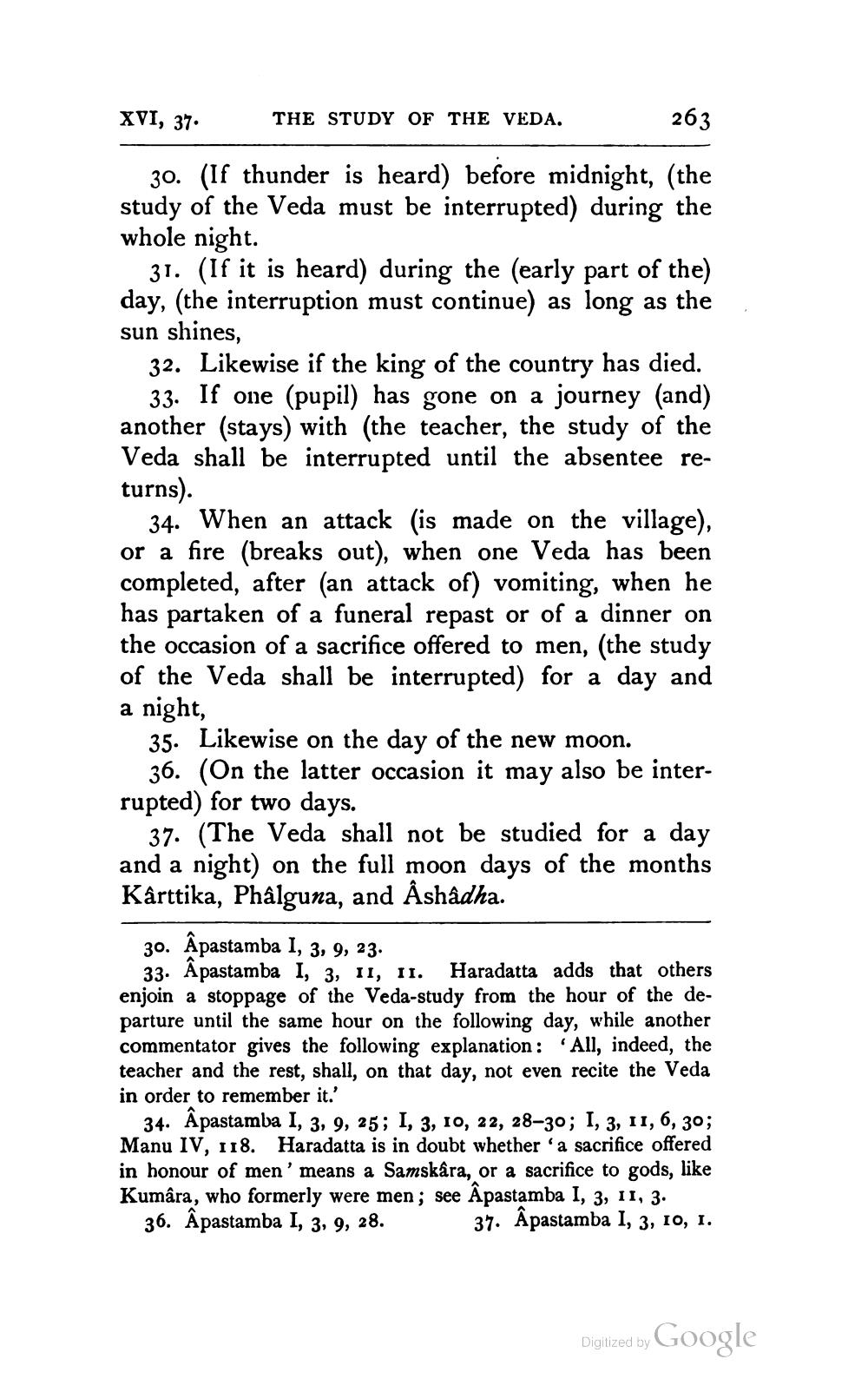________________
XVI, 37.
THE STUDY OF THE VEDA.
263
30. (If thunder is heard) before midnight, (the study of the Veda must be interrupted) during the whole night.
31. (If it is heard) during the (early part of the) day, (the interruption must continue) as long as the sun shines,
32. Likewise if the king of the country has died.
33. If one (pupil) has gone on a journey (and) another (stays) with the teacher, the study of the Veda shall be interrupted until the absentee returns).
34. When an attack (is made on the village), or a fire (breaks out), when one Veda has been completed, after (an attack of) vomiting, when he has partaken of a funeral repast or of a dinner on the occasion of a sacrifice offered to men, (the study of the Veda shall be interrupted) for a day and a night,
35. Likewise on the day of the new moon.
36. (On the latter occasion it may also be interrupted) for two days.
37. (The Veda shall not be studied for a day and a night) on the full moon days of the months Kârttika, Phâlguna, and Ashâdha.
30. Apastamba I, 3, 9, 23.
33. Apastamba I, 3, II, 11. Haradatta adds that others enjoin a stoppage of the Veda-study from the hour of the departure until the same hour on the following day, while another commentator gives the following explanation: All, indeed, the teacher and the rest, shall, on that day, not even recite the Veda in order to remember it.'
34. Apastamba I, 3, 9, 25; I, 3, 10, 22, 28-30; 1, 3, 11, 6, 30; Manu IV, 118. Haradatta is in doubt whether a sacrifice offered in honour of men' means a Samskara, or a sacrifice to gods, like Kumâra, who formerly were men; see Apastamba I, 3, 11, 3. 36. Apastamba I, 3, 9, 28.
37. Apastamba I, 3, 10, 1.
Digized by Google




